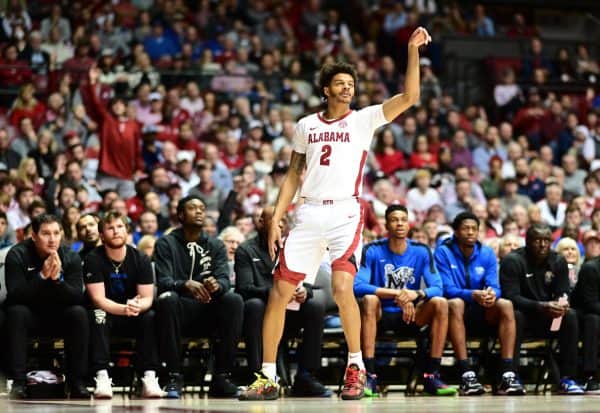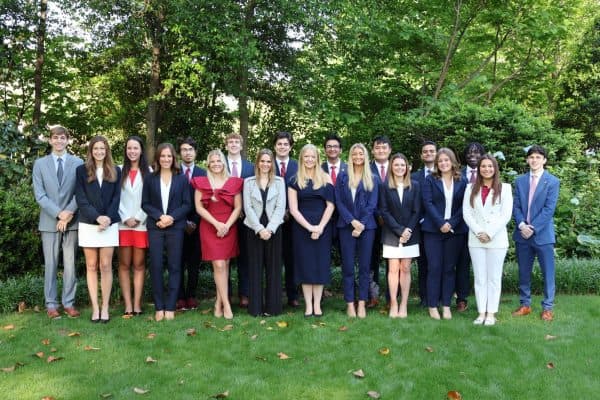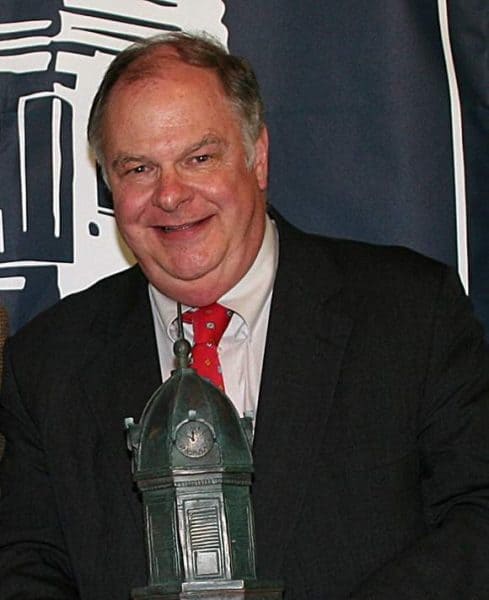Q&A | Meet the incumbent who says Tuscaloosa is heading in the right direction
Walt Maddox wants to remain mayor of Tuscaloosa
March 1, 2021
If elected, you will lead a city that encompasses the state’s flagship university. How do you plan on balancing the interests of the more than 30,000 UA students in Tuscaloosa with those of city residents?
Over the last 16 years, we have forged an outstanding relationship with the University of Alabama, as it relates to public safety, education and the economy. And the more that the University is successful, the more successful the people of Tuscaloosa will be. We know this has to be more than just a partnership. It has to be intentional for both of us to work together so we create success for each other.
In the WVUA debate, knowledge-based industries were discussed as a potential job market resource for students. What kinds of knowledge-based companies do you plan on recruiting, and what specific plans will you implement to bring them to town?
I believe what we need to do, and we are doing now, is continue to work with the University in those areas, like the Alabama Transportation Institute, cyber technology and water resource centers. These types of industries have the greatest promise to create the private sector around what is researched and developed at the University. It is from those points that you’re able to create the type of knowledge and technology based jobs that can keep students here. Those are the types of areas that we’re currently working with The University of Alabama that give us the best hope of jumping into the knowledge of technology based industries.
As mayor, you will have to address the proliferation of student housing developments. Please explain innovative strategies to address this issue.
In December, we were able to pass the extension of the moratorium and a density cap on property for a number of apartments. We were able to put in place a definition for student housing, they’ll allow us bifurcate student housing from more traditional housing, which will help in the areas of workforce. And we also eliminated the four and five bedroom concept, which was important because in a student apartment complex, it’s hard to take a four to five bedroom and convert it back into more traditional types of housing. Since 2013, I’ve certainly been on the forefront of this issue. I’ve been willing to speak out against student apartments, even when it wasn’t popular. And I continue to feel the same today.
Describe your specific policies to enhance safety measures for Tuscaloosa, specifically on campus.
We coordinate not just only in terms of strip security, which is probably the most visible, but UAPD is part of our Metro Human Trafficking Division, our violent crimes unit and our narcotics unit. On the flip side though, public safety really is more than just a function of law enforcement. It’s also what we can do to reduce the frequency of crime, getting after the disease itself and that’s lack of economic opportunity, housing opportunities, educational opportunities. That’s why you see embedded in Elevate the educational programs, whether it’s pre-K, dual enrollment scholarships, summer learning academies.
In 2020, the City of Tuscaloosa reported a combined budget of over $230 million. Explain your fiscal approach and the specific short-term and long-term goals you intend to set for managing the budget.
My goals are what was reflected in the independent analysis by Fitch Ratings, which said that the strong financial management of the city is due to conservative budgeting and active expenditure management. That’s what we’ve been able to do for 16 years. And that’s why you see reflected a AAA credit rating. Our fund balance has grown by $60 million. If you look back to March 2020, when the pandemic was just beginning to hit, we immediately began taking cost cutting measures. We were able to reduce our budget within $10 million to meet the expected shortfall, which it did. A lot of good work went into place that most people won’t see, but we were able to reduce our budget and keep services in place, which is in large thanks to our outstanding accounting and finance team. Moving forward, we’re going to take those same principles of conservative budgeting and active expenditure management.
During this election season, the issue of transparency has been raised. How do you plan on ensuring increased access to the mayor’s office for residents post-pandemic? In what ways will you work to connect with your constituents on a more personal level?
No. 1, our administration created 311, which gave everyone the ability to have open access city hall at any time. Second, every expenditure of the city of Tuscaloosa is posted online, whether it’s at data.tuscaloosa.com or elevatetuscaloosa.com. No. 3, before the pandemic, I had 115 town hall meetings. Those were our scheduled meetings. Those didn’t include meetings like neighborhood association meetings or district meetings. And since the pandemic began, we’ve had over 52 virtual town hall meetings, either directly with the people or other stakeholder groups. We’ve been very active in terms of transparency. I’ve worked very hard in my career to be out in the public. I coach my son’s flag football team. I go to church just like everyone else.
Earlier this month, the CW reported that there was PAC and corporate influence on the mayoral election, which is a cause for concern for many city residents. Do you see why this could be an issue? And what do you say to the criticisms?
Absolutely, I see why it can be an issue. 81% of our donations have come from individual donors, up until the last report. We’re certainly proud of that. To me, I think the important question is, people should be able to know who is directly giving to your campaign and why, and I’m willing to answer any questions about anybody who’s donated to my campaign.











